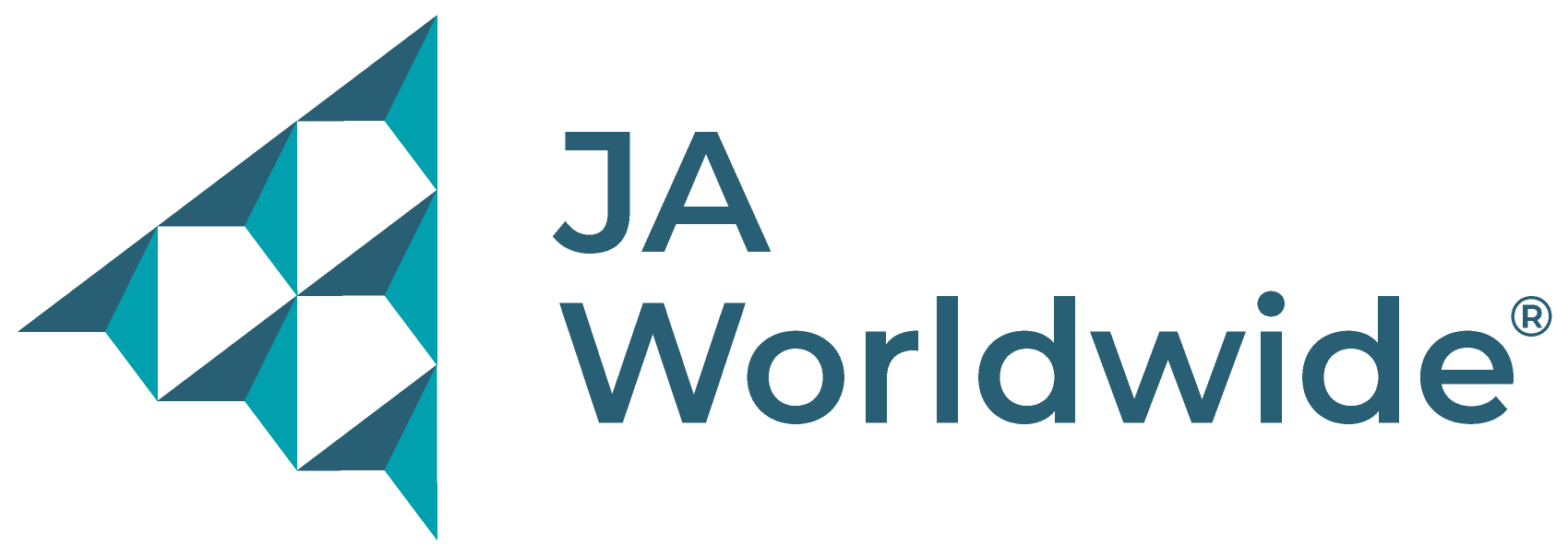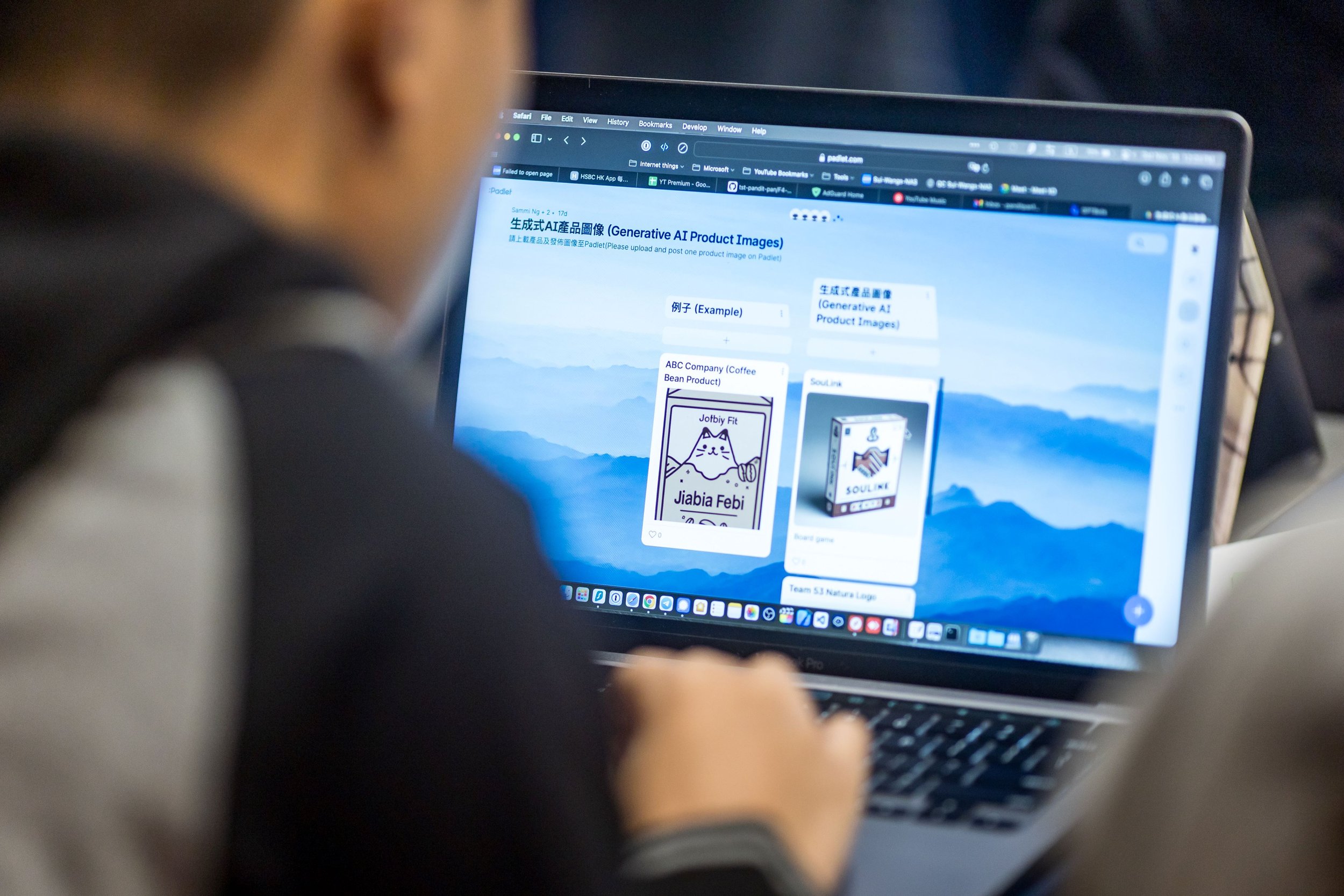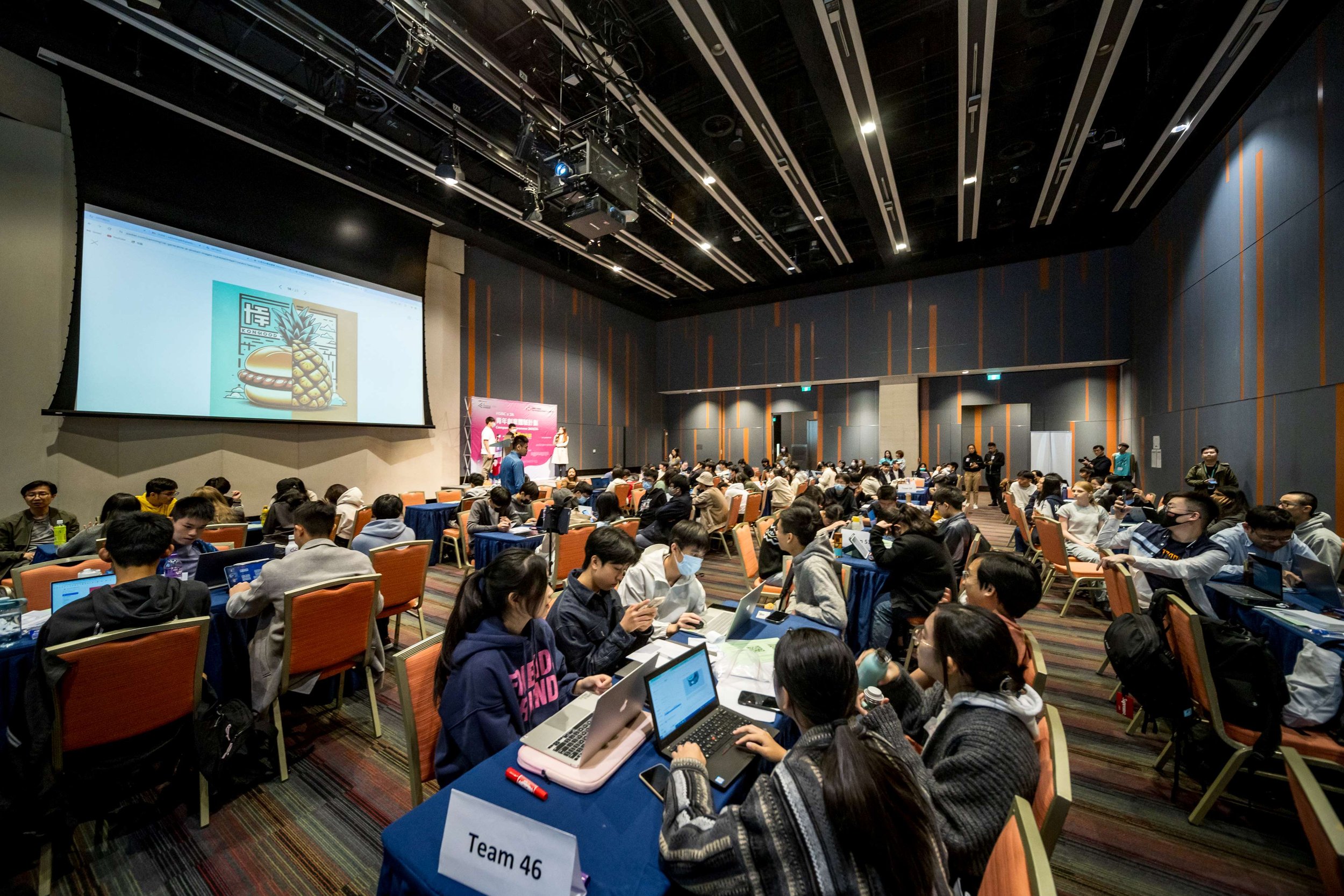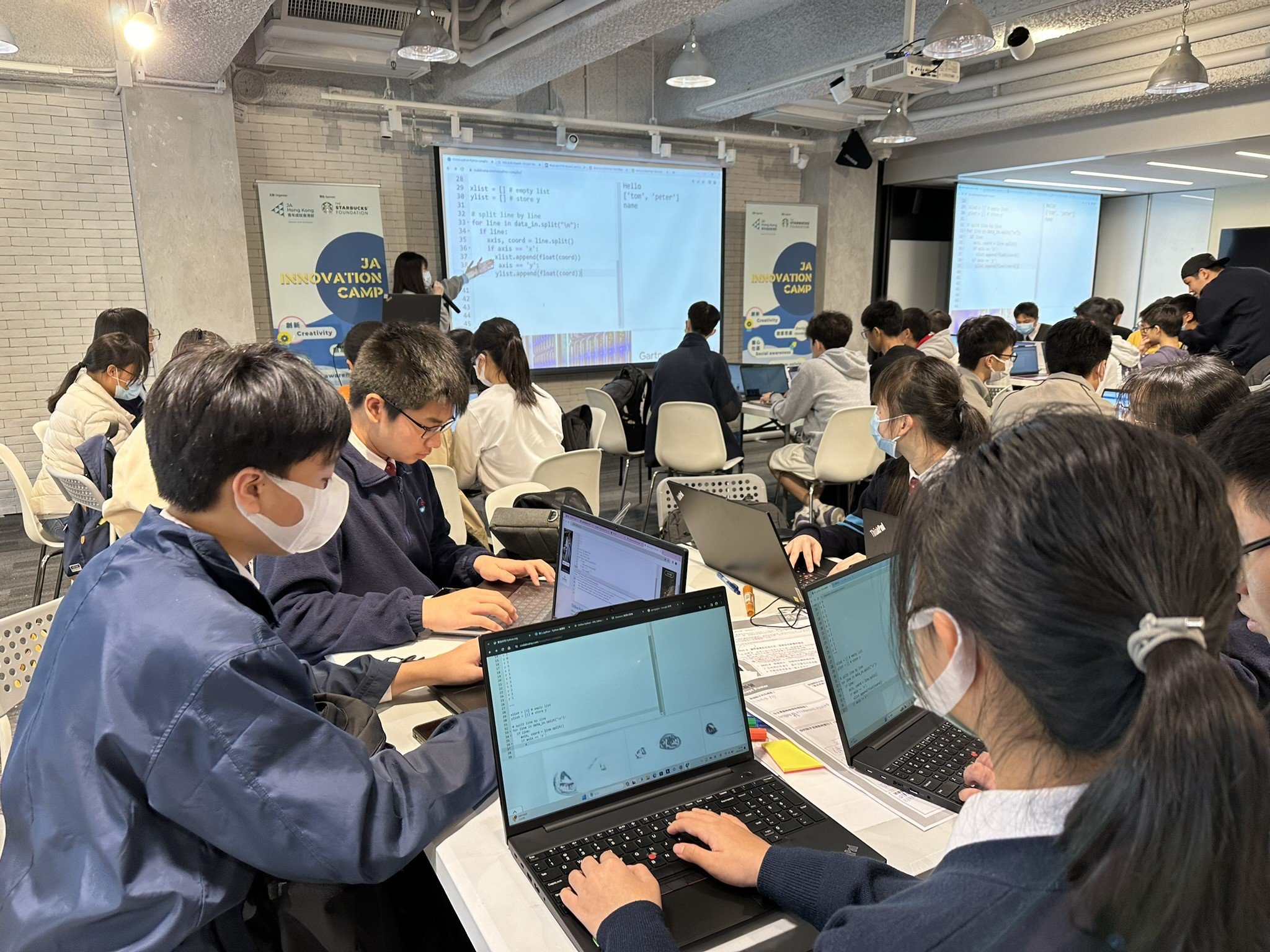JA and AI: What We're Doing and Why It Matters
April 18, 2024
JA has embraced AI in education, folding it into learning experiences to prepare youth for the future. Today is National AI Literacy Day in the US, and we’re celebrating by highlighting the ways the JA network uses AI around the world.
JA Asia Pacific
JA Korea’s Samsung Junior Soft Academy AI program goes beyond simply learning about software and AI technologies and develops a young person’s ability to respond to changing society with AI by allowing students to explore its concepts and principles. The program specifically helps students develop understanding through problem solving, reasoning, learning, interaction, and recognition through artificial intelligence. Samsung developed a detailed teacher’s manual and trains more than 600 teachers each year. Students participate in different courses depending on their grade levels:
Elementary school: Connect and Save
Junior high: Communicate and Collaborate for Junior High
High school: Travel with Data
Prestasi Junior Indonesia (JA Indonesia): Hundreds of thousands of students in Indonesia now have access to innovative WhatsApp API chatbot technology as part of the Cha Ching curriculum. The Cha-Ching WhatsApp chatbot delivers personalized learning experiences that cater to a diverse range of learning styles. Through interactive lessons, videos, and real-time assistance, JA students achieve a practical understanding of essential financial knowledge and decision-making. The platform provides a new dimension to education, enabling financial empowerment for Indonesians today and in the future.
JA Hong Kong–SAR, China promotes AI literacy and future-readiness among youth through the InnoTech Workshop and AI with Python training. Secondary school students participating in the JA Company Program and JA Innovation Camp gain hands-on experience leveraging generative AI for different aspects of their businesses. This early exposure also engenders appreciation for the value of AI and its possibilities.
JA Hong Kong-SAR student Mak shared, “Generative AI is something that we can’t learn in the classroom. In the JA Company Program, we learn to use AI to improve our business plan and cost control.” It’s important to equip young people with the knowledge, skills, and attitudes needed to thrive in the new digital world.
JA Europe
JA Europe created a merged curricula called AI-Entre4Youth that integrates AI into its entrepreneurship education program to help young people become more aware of the potential and limitations of this technology. The Erasmus+ Forward Looking Cooperation Project collaboration between JA Europe and a consortium of 10 partners with diverse expertise and experience in AI, education, and entrepreneurship. The project aims to equip young people with the necessary skills to navigate the digital world and prepare them for the future of work. The collaboration is working to develop and test new AI curricula that will be integrated into JA entrepreneurship education program. The curricula covers a range of topics, including AI basics, ethics, and its applications in various industries. AI-Entre4Youth launched in January in Spain, Portugal, and Italy, and it will expand to eight more European countries over the next two years. Learn more.
INJAZ Al-Arab/JA MENA
INJAZ Al-Arab/JA MENA developed and launched two AI courses for youth in the MENA region. High school and university-level students will experience Success Through AI Mastery, and elementary-age students will explore the world of smart machines with the AI Adventures curriculum.
The AI Adventures course offers concise lessons to develop students' critical thinking about AI. In a rapidly changing world, the course introduces AI functionalities, benefits, and risks. It encourages reflection on the social and ethical aspects of AI, covering key topics like news and media literacy, digital citizenship, and core AI concepts.
The JA Company Program is also integrating AI in 2024, with Innovate with Intelligence: AI for Youth Entrepreneurs. The video-based masterclass series guides students through the world of AI and uses real-life examples from both local and global business landscapes. Students learn how to harness the power of AI to shape their own innovative business ventures and take the first steps toward a more sustainable future enhanced by AI.
INJAZ UAE’s new grant with Microsoft will deliver two courses to students: Introduction to AI and Introduction to Generative AI. These initiatives mark just the beginning of our journey toward fostering AI literacy among students in the UAE.
Junior Achievement USA
Last year, Junior Achievement USA released a survey of teens that found nearly half of US teens (44%) were “likely” to use AI to do their schoolwork instead of doing it themselves this school year. However, most teens (60%) considered using AI in this way as “cheating.” In the United States, schools have been struggling with how best to respond to AI, with some banning use of generative AI like ChatGPT altogether, while others are exploring AI as a useful tool that students can use to enhance their learning experiences. Junior Achievement USA recognizes AI is here to stay and will have a profound impact on the future of work. In response, JA USA is currently reaching out to partners to develop learning experiences around the responsible use of AI. Read more.
JA Worldwide
The JA Worldwide Learning Experiences, Technology, and Innovation team is holding a three-part series on AI and education for JA staff around the world. In part one, held this week, staff heard about ethics, risk, transparency and accountability, data privacy and security, and inclusivity and accessibility as related to AI. Continuous learning is as important for JA staff as it is for students, and we’re committed to providing ongoing learning opportunities to JA staff so we can integrate AI into JA learning experiences responsibly. In addition, JA Worldwide recently hired Christian Erfurt as Global AI Lead, a new position.
In February, EdTech Digest featured an article by JA Worldwide COO Caroline Jenner and co-authors Gus Schmedlen (Texthelp Group), Laura Turkington (EY), and Bhakti Vithalani (BigSpring) about teaching young people how to use AI responsibly. The article poses questions educators, business leaders, and entrepreneurs to help better understand the benefits, challenges, and learning opportunities surrounding AI. Read more.





